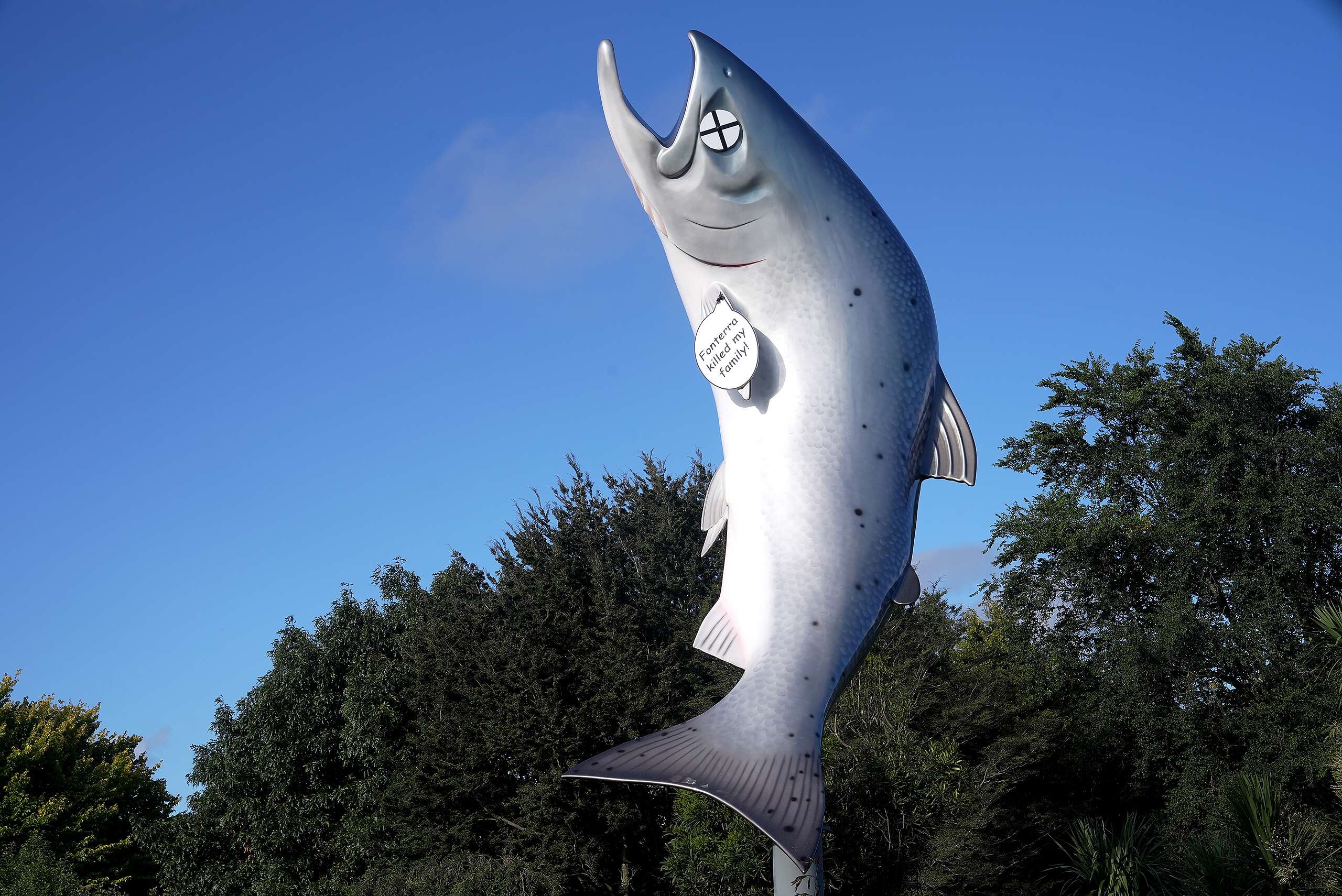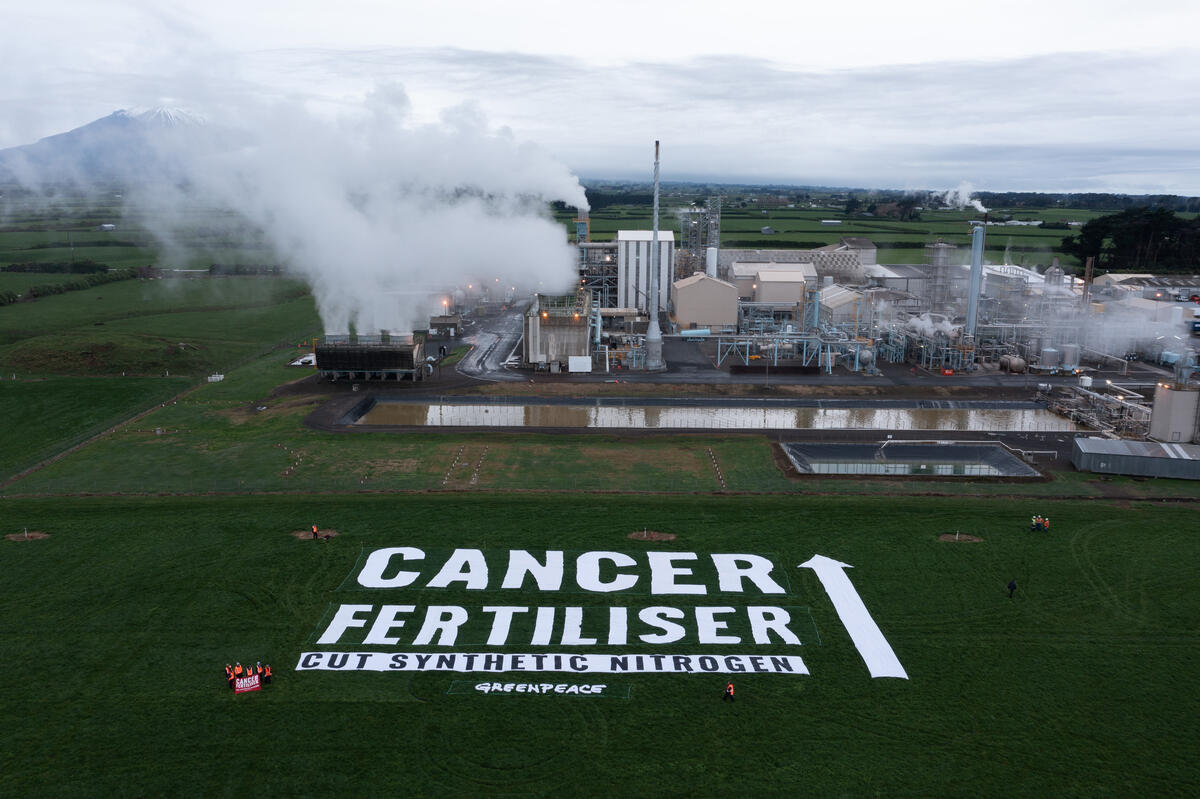New evidence acquired under OIA by Greenpeace has revealed that Fonterra first requested, and then helped to write, the Government’s new grass fed standards, following the announcement of an anti-greenwash lawsuit targeting the grass-fed logo on Anchor Butter packaging.
Greenpeace has received documents (attached below) which prove that the grass-fed administrative standards were developed by an industry-led Technical Advisory Group, composed of dairy and red meat processors and lobby groups including Fonterra, Silver Fern Farms, and Beef & Lamb NZ.
These documents also outline that Fonterra had specifically advised the government to establish a grass-fed standard to enable the dairy giant to “protect the existing value derived from promoting the New Zealand grass-fed attribute”.
Greenpeace spokesperson Sinéad Deighton-O’Flynn says “Yet again, this Government is allowing polluters to write policy. Instead of Fonterra being held accountable for its reliance on rainforest destroying palm kernel, the government has allowed the livestock industry to write a grass-fed policy that papers over its destructive practices with a government-backed seal of approval.”
“The grass-fed standard that the government developed with Fonterra, Dairy NZ and others from the agriculture industry is even more lenient than Fonterra’s existing standard. It seems abundantly clear from this recent evidence that when Fonterra is called out, their response is to rewrite the rulebook in their favour.”
The value of the term “grass-fed” was brought into question in September last year, when Greenpeace announced that it was suing Fonterra under the Fair Trading Act for misleading claims on Anchor Butter packaging. At the time, the packaging claimed to be ‘100% New Zealand grass fed’, while Fonterra’s grass-fed standard allowed for up to 20% of a dairy cow’s diet to be palm kernel, a controversial cow feed imported from palm plantations in Southeast Asia. New Zealand is the world’s biggest importer of palm kernel globally, importing almost 2 million tonnes annually.
An investigation by Rainforest Action Network in 2024 found 453 active hectares of illegal palm plantations operating in the Rawa Singkil reserve. Two major exporters of palm kernel to New Zealand were implicated in this illegal deforestation – both of whom supply palm kernel to Fonterra.
“Fonterra is well aware that their customers – both here and overseas – will pay a premium for clean and green products,” says Greenpeace’s Deighton-O’Flynn.
“But it’s not enough to just put a stamp on a packet of butter or lobby the government to give its seal of approval. The fact remains that these products are linked with the destruction of rare wildlife habitat and precious rainforests.
“Establishing a government standard for ‘grass-fed’ products is the latest step in Fonterra’s blatant attempt to cover up their role in environmental destruction, as well as avoid accountability for misleading people in the supermarket aisles.”



